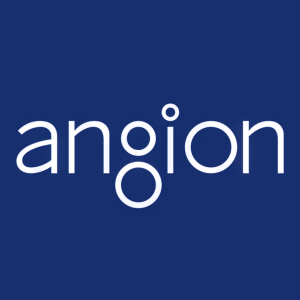Vifor Pharma and Angion report topline results from phase-III registration trial of ANG-3777 in kidney transplant patients at risk for delayed graft function
Angion Biomedica Corp. (NASDAQ: ANGN) announced disappointing results from its phase-III trial of ANG-3777 for kidney transplant patients at risk for delayed graft function (DGF). The trial did not show a statistically significant difference in estimated Glomerular Filtration Rate (eGFR) compared to placebo at 12 months (53.3 vs. 50.4 mL/min/1.73m2, p=0.33). Although there were minor indications of biological activity, the data did not support an indication in DGF. Further data analysis is ongoing to determine next steps.
- ANG-3777's safety profile remains consistent with previous data.
- Ongoing collaboration with Vifor Pharma on ANG-3777 for cardiac-surgery associated acute kidney injury (CSA-AKI) continues.
- Phase-III trial failed to demonstrate a statistically significant benefit for ANG-3777 in DGF patients.
- Data showed inconsistent benefits on key secondary endpoints.
- Management is disappointed as the trial did not meet expected outcomes.
Insights
Analyzing...
- Phase-III trial did not demonstrate a statistically significant difference from placebo on the primary endpoint of estimated Glomerular Filtration Rate (eGFR) at 12 months in patients at risk for delayed graft function (DGF)
- Safety profile of ANG-3777 consistent with overall experience
- Further data analysis ongoing to determine next steps
AD HOC ANNOUNCEMENT PURSUANT TO ART. 53 LR
ANG-3777 showed a modest but not statistically significant difference in eGFR of 53.3mL/min/1.73m2 versus 50.4mL/min/1.73m2 for placebo (2.9 mL/min/1.73m2 (p=0.33)). In addition, ANG-3777 demonstrated an inconsistent benefit on key secondary endpoints. Based upon these data, it is not expected there is sufficient evidence to support an indication in the studied DGF population.
The statistical analysis plan also included an analysis of only those people who completed the trial, without using a multiple imputation method to account for missing data and intercurrent events. Under this analysis, ANG-3777 showed a difference on 12 month eGFR of 57.1mL/min/1.73m2 versus 52.2mL/min/1.73m2 (4.9mL/min/1.73m2, p=0.06) for placebo. These data are potentially indicative of biologic activity of ANG-3777.
The overall safety profile of ANG-3777 in this trial was consistent with the overall experience in its clinical development program and consistent with the published literature in this patient population.
“Unfortunately, the results of the phase-III registrational trial did not confirm as strong of an effect as we hoped for in the interests of patients experiencing DGF after kidney transplantation”, said Dr.
“We are disappointed in the outcome of this trial. While we saw signals of activity for ANG‑3777, we hoped ANG-3777 would robustly demonstrate a benefit for transplant recipients who have no treatment options when their transplants have DGF,” stated
This multi-center, double-blinded, and placebo-controlled phase-III trial randomized 253 patients 1:1 to receive ANG-3777 or a placebo treatment dosed once per day for three days. Eligible patients received a deceased donor transplant and were determined to be at risk for delayed graft function by having low urine output (oliguria) for more than 8 consecutive hours post-transplant, reflecting potential graft injury. Twenty-five transplant centers in the
About
For more information, please visit viforpharma.com.
About Angion
Angion is committed to transforming the treatment paradigm for patients suffering from acute organ injuries and fibrotic diseases for which there are no approved medicines or where existing approved medicines have limitations. Angion’s lead product candidate, ANG-3777, is a hepatocyte growth factor (HGF) mimetic. An exploratory Phase 2 trial of ANG-3777 for the treatment of acute kidney injury associated with cardiac surgery involving cardiopulmonary bypass surgery is ongoing with data expected in the fourth quarter of 2021. Angion is scheduled to begin a Phase 2 trial evaluating ANG-3070, an oral tyrosine kinase receptor inhibitor for the treatment of fibrotic disease, in patients with primary proteinuric kidney diseases. Additionally, Angion has preclinical programs for a rho kinase 2 (ROCK2) inhibitor and a CYP11B2 (aldosterone synthase) inhibitor. For more information, please visit www.angion.com.
Angion expects to report cash and cash equivalents as of
About ANG-3777
ANG-3777 is a small molecule designed to mimic the biological activity of hepatocyte growth factor (HGF), which activates the c-Met cascade of pathways involved in tissue repair and organ repair. ANG-3777 has a substantially longer half-life than HGF. An exploratory phase-II trial for the treatment of acute kidney injury associated with cardiac surgery involving cardiopulmonary bypass (CSA-AKI) is ongoing with data expected in the fourth quarter of 2021. In
Forward Looking Statements
Statements contained in this press release regarding matters that may occur in the future are “forward looking statements” within the meaning of the Private Securities Litigation Reform Act of 1995, including but not limited to statements in this press release regarding Angion’s expectations that release of topline data from the ANG-3777 Phase 2 exploratory trial for the treatment of acute kidney injury associated with cardiac surgery involving cardiopulmonary bypass surgery will be in the fourth quarter of 2021, a global Phase 2 trial of ANG-3070 in patients with primary proteinuric kidney diseases will begin enrolling patients this year, and Angion expects to report cash and cash equivalents as of
View source version on businesswire.com: https://www.businesswire.com/news/home/20211026006150/en/
Media Relations
Nathalie Ponnier
+41 79 957 96 73
media@viforpharma.com
Investor Relations
Julien Vignot
Head of Investor Relations
+41 58 851 66 90
investors@viforpharma.com
Angion contact:
617-430-7576
daniel@lifesciadvisors.com
Source: Vifor







